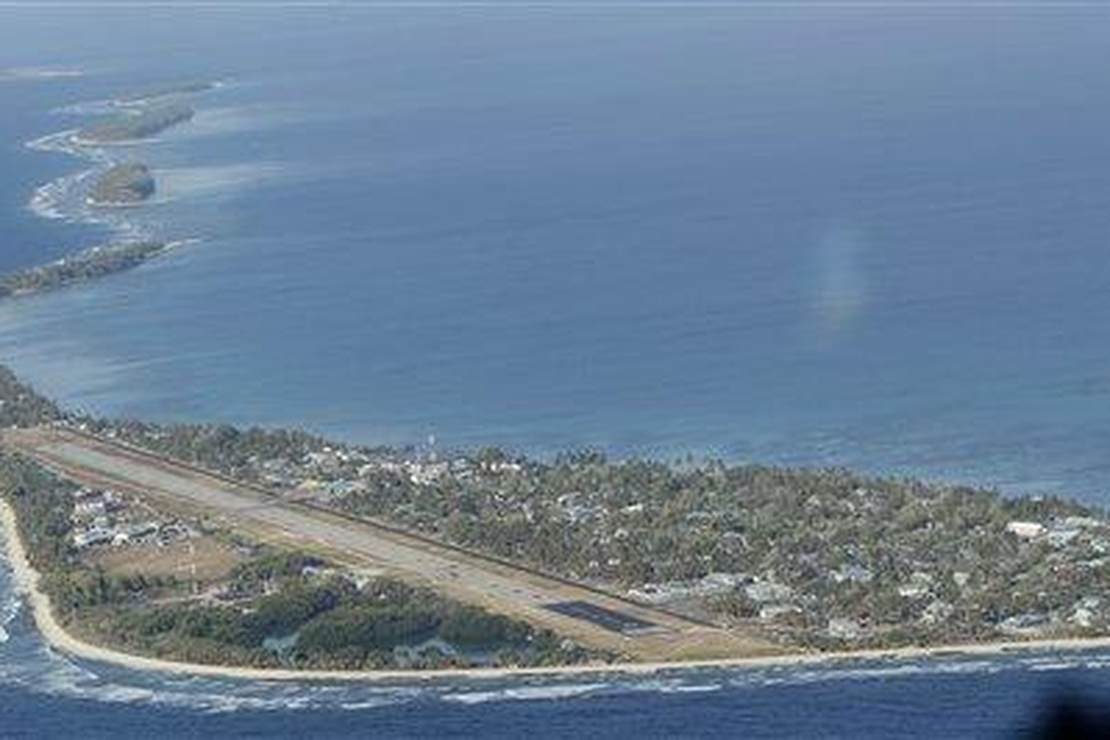
Earlier today we were discussing the threat China poses all across the Pacific and what we may need to do to prepare for serious aggression by the Chinese Communist Party. One clear indicator of the CCP’s long-term plans has been their moves to establish new military and naval facilities in some of the Pacific nations they have been pulling into their orbit. Yet another of these signs popped up in the news this week. It turns out that a Chinese company has been sizing up some property in the Solomon Islands that includes a deep-water port where such a naval presence could be readily established. And it sounds like they are close to closing the deal. (Yahoo News)
A Chinese state-owned company is negotiating to buy a forestry plantation with a deep-water port and World War II airstrip in the Solomon Islands amid persistent concerns that China wants to establish a naval foothold in the South Pacific country.
A delegation from China Forestry Group Corp. visited the plantation that covers most of Kolombangar Island in 2019, asking questions about the length of the wharf and depth of the water while showing little interest in the trees, Australian Broadcasting Corp. reported on Monday.
The board of Kolombangara Forest Products Ltd., the takeover target known as KFPL which is owned by Taiwanese and Australian shareholders, wrote to the newly elected Australian government in May warning of the “risks/strategic threats” posed to Australia by such a sale, the ABC reported.
This was rather clever of the Chinese if a bit obvious at the same time. I somehow doubt that a nation the size of China with all of the natural resources they control really needs to purchase a forestry plantation that far from the mainland. They sent the China Forestry Group to check the place out to make it look legitimate, but as the linked report notes, the visitors didn’t seem terribly interested in the trees. They were asking about the depth of the water in the harbor and inspecting the World War II airstrip located on the property. Having an old airstrip in place would make it much faster and easier to expand it into a modern military airfield as opposed to clearing some forest to start from scratch.
China having a permanent military base in the Solomon Islands should be of great concern to both Australia and New Zealand, since it would be located essentially right in their backyards. Given the amount of trade those nations engage in they have to be wondering what the long-term effects will be if China effectively controls the sea lanes. And if hostilities ever do break out, China will be able to deploy its naval forces far more rapidly.
It’s still possible that the deal might not go through. Because the timberland is technically owned by Taiwanese and Australian shareholders, they can exert some influence. In May they sent a letter to the new Australian government warning of the “risks/strategic threats” that could be posed to Australia if the sale goes through. But Australia’s Department of Foreign Affairs and Trade responded to their letter just last week saying that they have no plans to “interfere” with the sale, so that avenue to avoid this appears to be closing rapidly.
It’s not as if the world shouldn’t have seen this coming. Back in May, we discussed the lack of any effort on the part of the Chinese to hide the fact that they have been working to control the western and southern Pacific. In June, China signed an agreement with the Solomon Islands offering economic and defense cooperation, pulling them further away from the United States. At the time of the signing, China issued a statement declaring that the United States needed to “stop meddling in the Pacific.”
They couldn’t have been more obvious about what they were doing. And what did the White House do to fend off this move and keep the Solomon Islands more in our corner? If anything was done, it clearly wasn’t effective, and now that ship has sailed, both literally and figuratively. And why would the Solomon Islands have much confidence in our partnership anyway? Our attention is clearly focused on Europe and Russia, as well as the various crises unfolding in our own country. China saw an opportunity while we were asleep at the foreign policy wheel and they moved on it.
Source:






